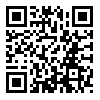Sat, Feb 21, 2026
[Archive]
Volume 4, Issue 4 (2-2023)
Int. J. Ethics Soc 2023, 4(4): 39-44 |
Back to browse issues page
Download citation:
BibTeX | RIS | EndNote | Medlars | ProCite | Reference Manager | RefWorks
Send citation to:



BibTeX | RIS | EndNote | Medlars | ProCite | Reference Manager | RefWorks
Send citation to:
Taghizadeh Shiadeh S N, Danaei A, Zargar S M. Trust the Ethical Principle of Virtual Interactions: Designing a Dynamic Model of Factors Affecting the Trust of Social Network Users. Int. J. Ethics Soc 2023; 4 (4) : 6
URL: http://ijethics.com/article-1-225-en.html
URL: http://ijethics.com/article-1-225-en.html
1- Ph.D. Student in Media Management, Semnan Branch, Islamic Azad University, Semnan, Iran
2- Department of Media Management, Semnan Branch, Islamic Azad University, Semnan, Iran ,danaeiabolfazl39@gmail.com
3- Department of Media Management, Semnan Branch, Islamic Azad University, Semnan, Iran
2- Department of Media Management, Semnan Branch, Islamic Azad University, Semnan, Iran ,
3- Department of Media Management, Semnan Branch, Islamic Azad University, Semnan, Iran
Abstract: (2711 Views)
Introduction: User trust is one of the main ethical principles that affect the success or failure of a social network platform. The multiplicity and interaction of users in social networks leads to the risks of data breach or disclosure of users' information. Therefore, the importance of correct decision-making by the managers of this social network and the prediction of events is of great importance. Therefore, the main goal of this research is to identify the main factors affecting users' trust and solutions to compensate the lost trust among the users of this social network.
Material and Methods: The current research was applied and among post-event researches. The statistical population of this research was media and communication experts who were selected using a random sample of 52 people. The questionnaire tool was made by the researcher. Data analysis was done with Kolmogorov-Smirnov test, Friedman test and dynamic systems analysis, and SPSS and Vensim simulation software were used.
Results: In this research, 34 factors affecting trust in social networks were investigated. The most important of which were internet fraud, the release of malicious software, the disclosure of personal information, the type of social networks and adherence to ethical principles, etc., and things such as cooperation and coordination between people, responsibility and commitment, benevolence, excessive use of social media in priority. There is an end. The validity of this model was proved by evaluating the appropriateness of the model boundary based on the purpose of the model and ensuring the realistic behavior of the model under limit conditions.
Conclusion: It is possible to increase the trust of users as well as the solutions for breaching data and privacy of users through the construction of cause and effect loops and finding the root of their main causes. Also, the effective factors and its solutions in the form of three balance circles were investigated and rooted.
Material and Methods: The current research was applied and among post-event researches. The statistical population of this research was media and communication experts who were selected using a random sample of 52 people. The questionnaire tool was made by the researcher. Data analysis was done with Kolmogorov-Smirnov test, Friedman test and dynamic systems analysis, and SPSS and Vensim simulation software were used.
Results: In this research, 34 factors affecting trust in social networks were investigated. The most important of which were internet fraud, the release of malicious software, the disclosure of personal information, the type of social networks and adherence to ethical principles, etc., and things such as cooperation and coordination between people, responsibility and commitment, benevolence, excessive use of social media in priority. There is an end. The validity of this model was proved by evaluating the appropriateness of the model boundary based on the purpose of the model and ensuring the realistic behavior of the model under limit conditions.
Conclusion: It is possible to increase the trust of users as well as the solutions for breaching data and privacy of users through the construction of cause and effect loops and finding the root of their main causes. Also, the effective factors and its solutions in the form of three balance circles were investigated and rooted.
Article number: 6
Type of Study: Original Article |
Subject:
Special
Received: 2022/08/10 | Accepted: 2022/09/5 | Published: 2023/02/7
Received: 2022/08/10 | Accepted: 2022/09/5 | Published: 2023/02/7
Send email to the article author
| Rights and permissions | |
 |
This work is licensed under a Creative Commons Attribution 4.0 International License. |







